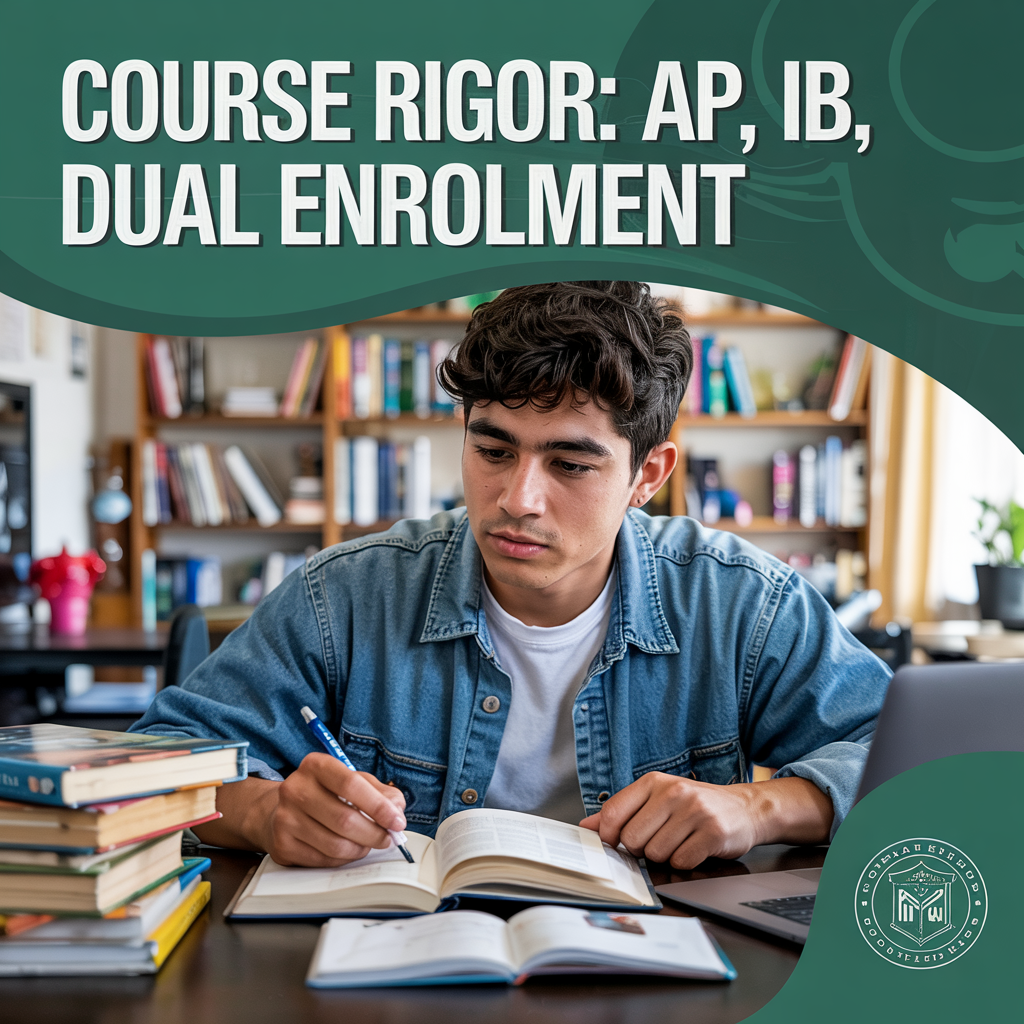Impact of High School Course Rigor: AP, IB, Dual Enrollment & College Admissions

When planning your high school schedule, you probably hear a lot about taking tough classes like Advanced Placement (AP), International Baccalaureate (IB), or dual enrollment. But how much does course rigor college admissions impact actually have? Do colleges care more about getting an A in a regular class or a B in an AP class? Let’s break down how colleges view these advanced courses.
💡 Pro tip: You can build a strong student profile and share your interests easily on Cirkled In — it’s like your digital handshake with colleges.
What Does “Course Rigor” Mean to Colleges?
Course rigor refers to the academic difficulty of the courses you choose throughout high school. Colleges look at your transcript not just for grades, but also to see if you challenged yourself with the most demanding courses available to you at your school. Taking advanced coursework shows initiative, intellectual curiosity, and readiness for college-level work. It demonstrates academic challenge.
Why Colleges Care About the Classes You Take
Colleges want to admit students who are likely to succeed academically on their campus. Seeing that you’ve already handled challenging coursework in high school gives them confidence you can manage the demands of college classes. It shows you aren’t afraid of hard work and are prepared for a faster pace and higher expectations. Your high school course selection signals your academic ambition.
AP Courses and College Admissions
Advanced Placement (AP) courses are college-level classes taught in high school, culminating in an AP Exam in May.
- How Colleges View Them: Taking AP courses is generally seen very positively. Success in AP courses college admissions committees view as strong preparation.
- Exam Scores: While taking the course is often valued most, good AP exam scores (typically 4s and 5s) can earn you college credit or placement into higher-level courses at many colleges, saving time and money.
- Context Matters: Colleges evaluate your AP participation relative to what your high school offers. They won’t penalize you if your school has few AP options.
The IB Programme (Diploma & Certificates)
The International Baccalaureate (IB) program offers challenging coursework. Students can pursue the full IB Diploma or take individual IB courses for certificates.
- How Colleges View Them: The IB Diploma Programme is widely respected globally as a rigorous, comprehensive curriculum. Earning the diploma demonstrates strong academic preparation across disciplines. The IB diploma value is high in admissions. Taking individual IB courses is also viewed favorably, similar to AP.
- College Credit: Similar to AP, higher-level (HL) IB exam scores often earn college credit or advanced placement.
Dual Enrollment / College Courses in High School
Dual enrollment allows high school students to take actual college courses (often at a local community college or university) and earn both high school and college credit simultaneously.
- How Colleges View Them: Taking dual enrollment college courses shows initiative and proves you can handle actual college-level work. It’s generally viewed positively.
- Transfer Credit: The college credits earned are often transferable, especially to in-state public universities, but policies vary widely. Check with the colleges you’re interested in.
- Comparability: Sometimes colleges find it harder to compare the rigor of dual enrollment courses from many different institutions versus standardized AP/IB courses, but it’s still seen as a challenging path.
Balancing Rigor and Grades: What’s More Important?
This is the classic question. Is it better to get an A in a standard class or a B in an AP/IB/dual enrollment class?
- The Ideal: Colleges love to see A’s in the most challenging courses available.
- The Reality: Most admissions officers would prefer to see a student challenge themselves and earn a B (or maybe even a C in a very tough class) than get easy A’s in less demanding courses. It shows you’re willing to stretch yourself.
- Don’t Overload: However, don’t take so many advanced classes that your grades plummet across the board or your mental health suffers. Find a balance that is challenging but manageable for you. Consistency is also important.
Colleges look at course rigor college admissions data within the context of your school and your overall transcript trend.
🎯 Prove your course rigor and showcase your achievements outside the classroom with a standout student profile on Cirkled In — colleges want to see the full picture.
Final Thought: Challenge Yourself Appropriately
Taking challenging courses like AP, IB, or dual enrollment signals to colleges that you are prepared and motivated for higher education. While grades are crucial, demonstrating academic challenge through thoughtful high school course selection adds significant weight to your application. Choose courses that genuinely interest you and push you academically, but find a sustainable balance.
Need more tips on college applications, scholarships, or just how to survive this whole process? Cirkled In has your back—check out Cirkled In resources to help you through every step of your college journey!
Check out Cirkled In and start owning your future today!



0 Comments